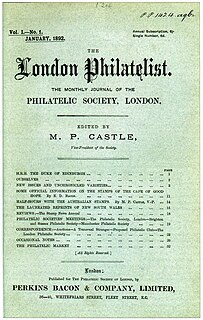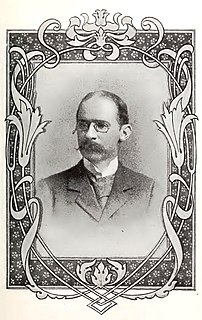
Edward Benjamin Evans, RPS, a British army officer also known as "Major Evans", was a distinguished philatelist, stamp collector, and philatelic journalist. His philatelic specialization included Mauritius, the Confederate States of America, the Mulready envelopes, and the Indian feudatory states.
John Alexander Tilleard was a British solicitor and the philatelist who was the first curator of the Royal Philatelic Collection.

Sir Edward Denny Bacon, KCVO was a British philatelist who helped with the enlargement and mounting of collections possessed by rich collectors of his time and became the curator of the Royal Philatelic Collection between 1913 and 1938.

Walter Morley (1863-1936) was a pioneering English philatelist, stamp dealer and philatelic author.

Adelaide Lucy Fenton was an early female philatelist and philatelic journalist who was among the first to adopt a scientific approach to philately. Fenton has been called "...the first female philatelist of note".

Mount Brown (1837-1919) was an early British philatelist and the compiler of only the second published stamp catalogue in the English language. Brown attended the City of London School and started to collect stamps in around 1860.
Gilbert "Gillie" Harrison was an English philatelist, and rugby union footballer who played in the 1870s and 1880s. He was one of the "Fathers of Philately" entered on the Roll of Distinguished Philatelists in 1921.
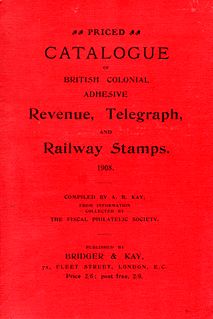
Alexander Berridge Kay was the founder, with E.J. Bridger, of the stamp dealers Bridger and Kay in 1897 or 1898 and a leading figure in the Fiscal Philatelic Society. In 1910, Kay identified used copies of the Italian forgery of the British grey-green Victorian 10 shilling stamp watermarked anchor and perforated 14. His letter to The London Philatelist, published in November 1910, warned the philatelic community of its existence.

William Amos Scarborough Westoby M.A. (1815–1899) was an English philatelist who was one of the "Fathers of Philately" entered on the Roll of Distinguished Philatelists in 1921. His obituary in The London Philatelist stated that he had "...fairly earned the title of the Grand Seigneur of Philately." By profession, Westoby was a Barrister of Lincoln's Inn.

William Wilmot Corfield was a British philatelist who was an important figure in Anglo-Indian philately. By his own account, he was an auditor by profession.
Charles Stanhope Foster Crofton was a British philatelist and a member of the Indian Civil Service.
The Philatelic Society of India (PSI) was formed in 1897 by a group of, mainly, expatriate Englishmen resident in the country as the first all-India philatelic society. During its first fifty years the society included most of the important Anglo-Indian philatelists and had a particularly strong publications record with two award-winning books. The society meets every first and third Saturday at the Mumbai G.P.O., convened by Dhirubhai Mehta, President, and D.M. Pittie, Hon. Secretary.

Sir Charles Stewart-Wilson KCIE was Barrister and an official in the Indian Civil Service who rose to become the Indian Director-General of Posts and Telegraphs.

Dr. David Arthur Stotter was a British philatelist who in 2008 was awarded the Crawford Medal by the Royal Philatelic Society London for his book The British Post Office Service in Morocco 1907-57.
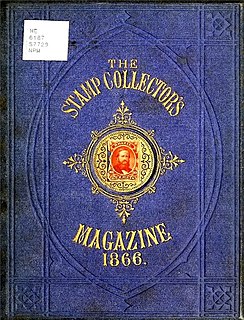
The Stamp-Collector's Magazine was one of the earliest philatelic journals. It was published in twelve volumes between February 1863 and 1874.
Peter John Anderson, LLB, MA, FSA, JP, was the Librarian of the University of Aberdeen since 1894 and a noted philatelist who signed the Roll of Distinguished Philatelists in 1921. He was Secretary of the New Spalding Club and President of the Aberdeen and North of Scotland Philatelic Society. He bequeathed his collection of philatelic literature to the University.

Lawrence Arthur Burd FRHistS FRPSL was a British public school teacher, expert on the works of Niccolò Machiavelli, and noted philatelist.
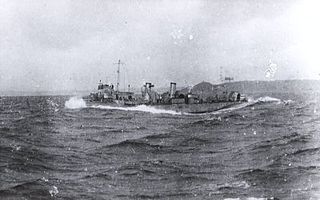
Captain Charles Wispington Glover Crawford, CBE was a British Royal Navy officer who commanded the Devonport flotilla of motor torpedo boats. In his spare time he was a noted philatelist. He signed the Roll of Distinguished Philatelists in 1934.

